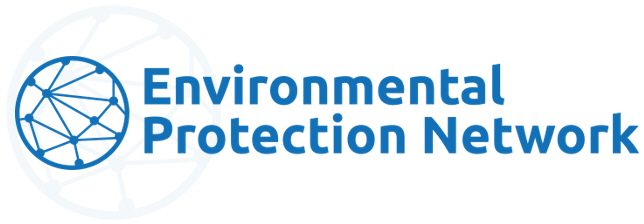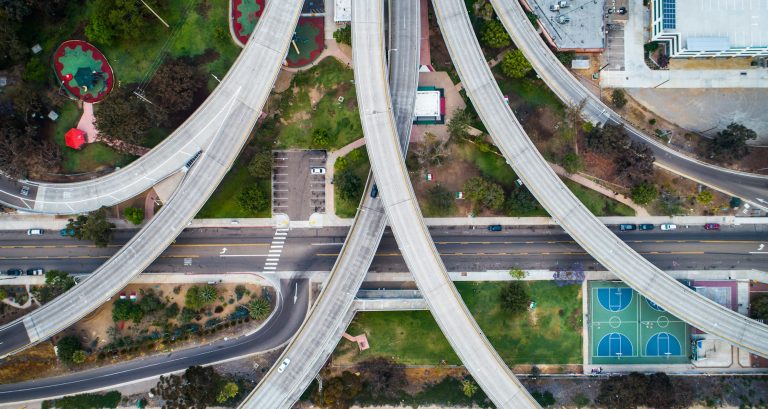Please share this information widely! And please sign up to receive these updates in your inbox every 2 weeks or so.
Below, you will find:
- EPN’s Updated Community Change Grant (CCG) Sample Narratives
- EPN’s CCG Technical Assistance
- EPN’s Pre-Award Resources
- DOT’s Reconnecting Communities Pilot Grant Program and Reconnecting Communities Institute
- Free Grant Writing 101 Webinar
- Opportunity for Community Science Projects
EPN’s Updated Community Change Grant (CCG) Sample Narratives
1) EPN Resource Updates
We recently made some small revisions to strengthen our Track I sample narrative and Track I Climate Resilience Hub sample. If you have already submitted, you can ignore this. If you are currently using these samples to create your draft proposal, please review these resources to ensure that your application reflects our most up-to-date guidance. For example:
Track I Sample:
- Describe how the boundary of the Project Area was determined in the Community Description section.
- Show clear linkages between the identified community challenges and the chosen strategies/projects. EPA is looking for these connections to be solid and clear.
- Ensure that the challenges in the Community Challenges section are explicitly addressed by your Climate Action and Pollution Reduction strategies.
- Weave in details about how the chosen strategies and projects will benefit priority populations throughout.
Climate Resilience Hub Sample:
- Make sure that the Project Workplan provides a detailed description of the applicant and statutory partner organization. This is not required in the Executive Summary.
- Ensure that the Community Description section of the Community Vision provides detail on the Project Area and how its boundaries were determined, as well as ample information on resources, assets, characteristics, etc.
- It is helpful to link the strategy choices to community challenges, with a streamlined mention at the beginning of each strategy that transitions into why that strategy will help address the challenge.
- For the Workforce Development strategy, ensure that all training courses/focus areas are related to GHG and air pollutant emission reductions.
- Pollution reduction strategies/projects that increase monitoring capabilities/raise community awareness MUST also include an associated remediation, implementation, or infrastructure pollution reduction project.
- Ensure that Outputs and Outcomes have a clear and direct correlation to each other.
EPN’s CCG Technical Assistance
2) Updated Technical Assistance and Partner Request Form
If you are interested in finding partners or requesting technical assistance from EPN for this grant opportunity, please use our new technical assistance request form. In addition, if you are still searching for partners, please download this list of potential partners.
3) CCG TA Requests
Due to the extensive time and effort needed to put together a competitive CCG application and EPA’s fast-approaching November 21 application deadline, EPN will only be able to provide Community Change Grant-related assistance to organizations or entities that have an advanced draft proposal and are looking to strengthen their application or seek draft review starting September 1, 2024. After September 1, we will not be able to assist groups 1:1 who are earlier in the process, but all of our resources will still be on our website.
EPN’s Pre-Award Resources
4) General Resources for EPA Grantees
Once EPA announces new grantees, those selected must come to a formal grant award agreement with EPA, which can sometimes take 6 months or more. To ensure that as many EPA funds are obligated and flowing to projects as quickly as possible, EPN has compiled basic resources and instructions on many of the requirements and milestones that must be met.
5) Specific Pre-Award Resources for CPRG Grantees
EPN has and will continue to create pro bono resources and provide 1:1 support for grantees of EPA’s Climate Pollution Reduction Grant (CPRG) Program: Implementation Grants to help them through the EPA grant award process. In collaboration with TRC Consulting, we have created a timeline and checklist to guide entities through grant negotiations and to grant award acceptance. In addition, on July 31, 2024, we held a CPRG Awardee: Initial Planning Workshop to go over our timeline and checklist, provide information, answer questions, and offer the opportunity to request 1:1 support. You can now access the slides and a video of the workshop, and if you are a grantee or partner, please email epa-support@trccompanies.com for 1:1 assistance.
DOT’s Reconnecting Communities Pilot (RCP) Grant Program and Reconnecting Communities Institute (RCI)
6) DOT’s RCP Grant Program and RCI Technical Assistance
There is up to $607 million available in the RCP Program, which aims to advance and support reconnection of communities divided by transportation infrastructure – with a priority on helping disadvantaged communities improve access to daily needs (jobs, schools, healthcare, grocery stores, and recreation). Applications must be submitted by September 30, 2024, for planning and capital construction activities that aim to restore community connectivity through the removal, retrofit, mitigation or replacement of highways, roadways, or other infrastructure facilities that create barriers to mobility, access, or economic development. More information can be found on DOT’s Discretionary Grants Dashboard. Check the How to Apply page regularly, and sign up for email updates.
Many reconnecting projects are also eligible for funding under formula programs or eligible discretionary grant programs. In addition, potential applicants who are interested in pursuing a reconnecting type project but are not prepared to submit funding requests within 90 days can submit a request for technical assistance through the Reconnecting Communities Institute (RCI). More information can be found on DOT’s Discretionary Grants Dashboard.
To support communities in preparing strong RCP Program grant applications, RCI is hosting a series of no-cost, virtual Grant Writing Clinics and Office Hours led by experts with deep experience in federal grant programs, and in assisting communities with transportation reconnection projects.
Grant Writing Clinics
- August 16, 2024, 12:00pm-5:00pm EDT. Register here.
- September 13, 2024, 12:00pm-5:00pm EDT. Register here.
Office Hours
- August 22, 2024, 11:00am-6:00pm EDT. Register here.
- September 16, 2024, 11:00am-6:00pm EDT. Register here.
For more information, please view the RCI Resource Library or contact RCI at RCI@dot.gov.
Grant Writing 101
7) Free Grant Writing 101 Webinar with RCE Greater Atlanta
Join RCE Greater Atlanta virtually on August 18 at 1pm ET to learn some basic strategies and tactics for preparing for grant applications. When you register, please share more about what kinds of grants you’re interested in applying for, so that they can tailor the content accordingly. You’ll learn how to gather the right partners, build a compelling narrative, and complete required paperwork. Please register HERE. If you have any questions about this session, please contact Sharmin Sadequee – ssadequee@gmail.com.
Zoom Meeting:
https://us06web.zoom.us/j/86703431842?pwd=F5uVGkcMHYZlwHcwkEaN92sZMeetOe.1
Meeting ID: 867 0343 1842
Passcode: 942027
Opportunity for Community Science Projects
8) Thriving Earth Exchange Seeking Community Partners for Community Science Projects
The Thriving Earth Exchange supports community science by helping communities find resources, project managers, and experts to address their pressing concerns. Together they work to help communities be more empowered, resilient, and responsive. They are seeking community partners who are interested in doing community science projects, including:
- Indigenous communities in the US focused on brownfield restoration
- Spanish-speaking communities around the US focused on any environmental-related topic
- Frontline communities experiencing flooding in the northeast
- African American churches in the mid-west focused on climate change mitigation on church land
The program is free of charge for communities, and projects are designed to make an impact through creative problem-solving and in-kind support, and are supported by volunteer Community Science Fellows – project managers TEX trains and matches to the community. Projects can also access a small seed fund to support their work. Typical project outputs can include – but are not limited to – developing reports, webinars, podcasts, data, maps, exhibits, grant proposals, applications of technology, or interviews. You can apply using this form, and the deadline is August 12, 2024. Spots are limited. For questions, please reach out to Amanda Shores at ashores@agu.org.

